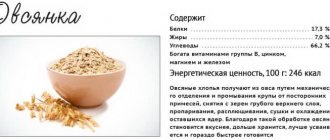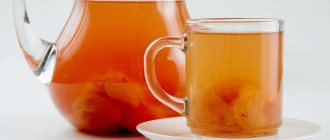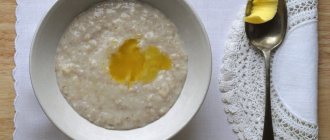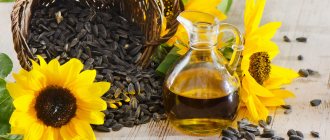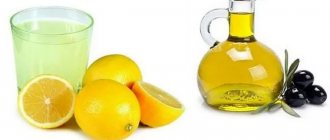- What are the benefits of olive oil?
- When should you be careful?
- How to choose the right olive oil?
- The benefits of olive oil in cooking
- The benefits of olive oil in cosmetology
- Olive oil for relaxation
Olive oil is so popular today that it is present in almost every kitchen. And a dozen years ago, this product was widely used only in traditional Mediterranean cuisines.
| Nowadays, olive oil is carefully chosen, it is flavored with gourmet dishes, added to home cosmetics, and people manage to benefit both the external and internal health of the body. How to choose olive oil? Why is it so useful? And why is it so universal in its use? |
What are the benefits of olive oil?
High-quality and natural olive oil is a very valuable and delicious product. It is produced in the Mediterranean countries, where they really know a lot about this product. To produce oil, different varieties of olives and olives of varying maturity are used, and several technologies are used. All these subtleties form the basis of the useful qualities of the final product and its cost.
If you have managed to become a true connoisseur of olive oil, if you use it on a regular basis, then be sure of its exceptional effect on your body. Multiple studies and observations, the experience of southern residents proves:
- this is an excellent remedy for the prevention of diseases of the cardiovascular system, in particular heart attacks and strokes; its intake into the body helps reduce the amount of bad cholesterol in the blood, which is especially important in adulthood and old age;
- the oil is very useful for the digestive tract - it improves the functioning of the pancreas, liver, stomach, intestines, has a beneficial effect on existing ulcerations and prevents the formation of new ones; has a laxative effect, normalizes stool; produces a choleretic effect, and therefore is useful for the treatment and prevention of cholelithiasis;
- olive oil contains a wide range of monounsaturated fatty acids, but remains a dietary product; they are necessary for the formation of cell membranes, participate in the absorption and processing of other fats; consuming olive oil reduces appetite and speeds up metabolism;
- the variety of vitamins and minerals contained in the oil prevents the development of atherosclerosis, heart and vascular diseases, promotes the removal of cholesterol, helps in the treatment of the digestive system, and strengthens bone tissue;
- the content of antioxidants, vitamins C and E makes the oil indispensable for the beauty, elasticity and youth of the skin; when used for dry and sensitive skin, moisture loss is prevented; promotes regeneration and restores the hydrolipid mantle of the skin;
- Olive oil is useful in providing the immune properties of the body; it contains anti-inflammatory and analgesic components, biologically active carbohydrates, sterols, terpene discohols and tocopherol;
- the oil has a beneficial effect on bone tissue, prevents the excretion of calcium from the body, which means this product is especially useful for children’s bodies;
- has antitumor properties - due to the content of oleic acid and antioxidants, it is removed from organisms that could contribute to malignant transformations in cells.
Contraindications
Olives and olive oil can cause allergies. The fruits and oil contain the allergenic protein Ole e 13
, in rare cases, upon contact with skin, causing irritation and redness. Sometimes other allergy symptoms occur: swelling of the nasal cavity, headaches, coughing and sneezing.
Olive oil is contraindicated in patients with cholecystitis (chronic inflammation of the gallbladder), as it has a choleretic effect. Eating it can lead to an exacerbation of the disease and a painful attack.
When should you be careful?
Olive oil , like any food product, is not absolutely healthy, devoid of any harmful effects. Despite the fact that this oil contains a lot of useful substances, vitamins, minerals, it is not recommended to get carried away with it blindly. There is a category of people who are advised to be careful when using olive oil:
- those suffering from cholecystitis - the choleretic qualities of olive oil can negatively affect the inflammatory process in the gallbladder, exacerbating it;
- those adhering to a strict diet - although olive oil is considered a dietary, easily digestible product, one tablespoon contains 150 calories, which should be taken into account when planning your diet;
- olive oil , as some studies have shown, undergoes some changes during heat treatment, lipid peroxidation occurs, and the resulting toxic substances, to some extent, sooner or later react with DNA molecules and proteins in the human body, triggering mutational and carcinogenic processes; Therefore, it is not recommended to indulge in foods fried in olive oil.
How positive the effect of olive oil will be on your body depends on how correctly the oil was chosen. For example, it is necessary to take into account that after 5 months of storage the oil loses a good part of its benefits, and after 18 months it is completely unsuitable for use. Agree, very often we manage to buy a large bottle of oil for future use or do not even pay attention to the date of its production.
How useful this or that olive oil is depends on the technology of its production - there are several types of olive oil extraction, features of its bottling and transportation. You shouldn’t focus on the color of the oil at all; it depends on the degree of ripeness and the type of olives. To make the best choice of olive oil, you should carefully study the label of a particular product.
How to choose the right olive oil?
The modern range of olive oil is striking in its diversity. The choice is such that it is quite easy to get confused, and the product itself is so useful that you don’t want to, having purchased a low-quality product, amuse yourself with the thought of its qualities without using them. Despite the wide range of production around the world, today, as centuries ago, the best olive oil is produced in Italy and Spain. Close on their heels are Greece, France, Turkey, Israel, Cyprus - countries where climatic conditions and long-standing traditions make it possible to make a truly natural and healing product. Despite the existence of regulatory international documents, different olive oil producers assign their own names and categories to their products. The simplest classification of olive oil, which allows you to get the healthiest products in your kitchen, is represented by three categories of oil - natural unrefined (virgin), purified, refined (refined) and pomace. Each of them has its own advantages and qualities, but according to the ranking scale, it is the first that is most valued.
olive oil is considered the most beneficial for health (when consumed) and beauty (when used for cosmetic purposes). This oil is produced by pressing, and the result allows you to enjoy the natural taste and the whole range of beneficial qualities. The Virgin olive oil production process involves washing and drying the olives, centrifuging the fruit, and filtering the resulting oil. It is ideal for making homemade cosmetics, and it is best consumed as a salad dressing.
If an olive oil label contains the term extra before Virgin, it means the highest quality. For the production of such a product, exclusively mechanical equipment is used, first cold pressing. Compared to Virgin oil without the extra prefix, the best varieties of olives are used here. Without stopping at this mark, in your quest for a truly delicious product, you can pay attention to products with the DOP mark (denominacion de origen protegida). It means that the olives were grown in the geographic area where the oil was subsequently produced and bottled. This is a vintage olive oil that is produced to the highest standards and is subject to constant quality checks.
Olive oil of the Refined category is inferior in the content of nutrients to the categories described above, although it is not without very obvious advantages. This oil cannot be used for significant healing and rejuvenation of the body, but it is excellent for heat treatment. Refining oil removes from it those substances that, when cold pressed, are beneficial, but at the same time, heating them makes them almost carcinogenic. It is absolutely safe to use refined oil for frying, boiling, and stewing. In addition, it has a lower cost.
In order to save money, but also get enough benefits from consuming olive oil, you can buy a mix of refined oil and cold-pressed oil. This is stored longer and costs less than natural, while being much healthier than refined. The label of such oil will say mix or pure olive oil.
olive oil is made from what remains after Virgin oil is prepared, the pomace. To restore color and taste, a little natural oil is added to the final product, but this is the lowest quality oil. Its advantage, like refined oil, is its suitability for heat treatment and, of course, the lowest cost.
What other characteristics of the oil can you evaluate?
- Color - depends on the variety of olives and the method of processing the oil, ranging from light gold to dark green.
- The taste is rich, intense, sometimes bitter, sweet, salty and even sour; a defect is considered watery, vinegary and/or metallic taste, rancidity.
- Acidity – determined by the content of oleic acid; the lower its concentration in cold-pressed oil, the better its quality; for extra virgin oil it should not exceed 1%, for virgin oil - 2%, and for refined olive oil - no more than 1.5%.
Purchase and store olive oil in glass containers, preferably tinted glass. To check the quality of the purchased product, a simple test is used: place the oil in the refrigerator for 2-3 days, after which a white precipitate should form at the bottom of the container, this is stearin. As soon as you expose the oil to room temperature, the sediment will begin to dissolve and the oil (obviously high quality) can be consumed.
General principles of diet
If an ulcer appears in the gastrointestinal tract, you should pay attention to your diet. The diet must be followed for at least six months after an exacerbation or surgery. Doctors recommend adhering to the following rules:
- Refusal of fatty foods and alcoholic drinks.
- Consume 2800-3000 calories per day.
- Avoid cold and hot foods.
- Drink water in an amount of 1.5-2 liters.
- Eat food often, in small portions, 5-6 times a day.
- There are boiled, baked or steamed foods.
The benefits of olive oil in cooking
Olive oil is widely used in cooking. Depending on which variety is chosen, the oil is best used in its natural form (as a dressing for salads, cold appetizers, sandwiches) or for heat treatment. The body receives the maximum benefit from olive oil if it is used in its natural form (and this should be extra-virgin or virgin olive oil), but for good purposes, do not rush to use it for frying or stewing foods.
What interesting recipes can you remember using natural cold-pressed oil?
Sandwiches
- with salmon and soft cheese - soft cheese (for example, feta) mash with a fork with the addition of olive oil, a pinch of dried dill and ground pepper; brush the bun or ciabatta with cheese, top with lettuce and a slice of lightly salted salmon;
- with tomatoes and basil - dry ciabatta or bruschetta in a hot frying pan; Scald the tomatoes with boiling water and peel them, cut them into slices, chop some basil; Rub the bread with garlic, sprinkle generously with olive oil, add tomatoes and basil, pepper and salt to taste;
- with turkey and homemade mayonnaise - dry the ciabatta or pancetta on a hot grill, also grill a slice of turkey fillet; thoroughly beat the yolks, olive oil and your favorite spices to obtain mayonnaise; Spread both slices of bread with mayonnaise, place two lettuce leaves and two tomato slices, and place the fried fillet in the middle.
Salads
- Greek - traditional salad using olive oil; cut tomatoes, bell peppers, cucumbers into large cubes, place in a deep bowl, add cubes of feta cheese and ripe olives on top, pour in olive oil and season with your favorite spices;
- vegetable with chicken - boil chicken fillet in salted water with bay leaf, disassemble into fibers; cut the tomato and cucumber into thin slices, chop the Chinese cabbage, chop the parsley and dill; Combine all ingredients in a deep bowl, pour in olive oil, salt, sprinkle with flax seeds and other favorite seasonings;
- with shrimp and arugula - boil or fry shrimp with garlic and spices; place arugula in a bowl, cherry tomatoes cut in half and quail eggs on top, and shrimp on top; sprinkle the salad with lemon juice, season with olive oil, add salt and black pepper to taste.
What causes peptic ulcer disease
According to scientists, peptic ulcer disease is provoked by the activity of certain bacteria.
An ulcer is characterized by damage to the mucous membranes of the digestive organs. According to scientists, peptic ulcer disease is provoked by the activity of certain bacteria that have chosen the acidic environment of the stomach for reproduction. To stimulate remission of the process, you need to influence 1 of 3 factors:
- The area of tissue where inflammation occurs;
- Acidic environment;
- Pathogen.
Traditional medicine uses flax seeds to alleviate the manifestations of ulcerative pathology. The composition of this product allows you to unobtrusively influence all 3 of these elements. For a long time, flax seeds have been successfully used to treat gastrointestinal pathologies.
The benefits of olive oil in cosmetology
Olive oil is extremely popular in the manufacture of homemade cosmetics - it becomes one of many components, as well as the basis for healing mixtures. If you decide to save money on preparing homemade skin, nail, and hair care products and use refined or pomace olive oil, give up this idea. For cosmetic purposes, it is necessary to choose the “right” olive oil, namely extra-virgin or virgin olive oil.
Take note of the following recipes for masks, baths, creams for the beauty and youth of your body:
- to improve nail growth - heat olive oil in a water bath to 40°C (no more) and use as a bath for your fingertips, that is, nails; You can simply lubricate the cuticle area with olive oil, this will stimulate the growth of healthy nails;
- to nourish and moisturize the feet - the skin of the feet is very often deprived of attention, and therefore cracks and becomes rough; before going to bed, steam your feet in a soap and soda bath, massage them with pumice, and then grease them thoroughly with olive oil and rub it into the skin, put on terry socks on top and go to bed;
- egg-honey face mask - combine and mix thoroughly 1 egg yolk, 1 tsp. honey, 1 tbsp. olive oil and lemon juice; Apply the resulting mixture to the skin of the face, rinse with running water after 20 minutes;
- cosmetic clay mask - combine 1 tbsp. white or blue clay (sold in pharmacies) with 1 tbsp. olive oil, apply to face, rinse after 10-15 minutes with running water;
- nourishing hair mask - combine and mix thoroughly 2 tbsp. olive oil, 1 tbsp. lemon juice, 1 egg yolk; Apply the resulting mixture to damp hair, wrap it in cling film and a terry towel, leave for 15 minutes; rinse using your usual shampoo;
- Instead of body lotion, apply olive oil after showering, and after a few minutes, remove excess oil with a paper towel.
Table No. 1
This diet is less gentle; it is used during the period of remission, as well as when the symptoms of the disease are not clearly expressed.
Allowed:
- Bread (not fresh, yesterday's) - gray and white. Biscuit cookies, sponge cake.
- Cereal soup, milk or vegetable (without cabbage). Milk noodles or vermicelli. Flour and fat are not sautéed.
- Steamed cutlets, steamed or boiled beef stroganoff.
- Boiled fish, lean, in one piece.
- Vegetable puree, pudding, zucchini, ungrated pumpkin, greens. Mushrooms and cabbage are not allowed.
- Eggs.
- Sweet fruits and berries.
- Dairy products.
- Pressed lightly salted caviar.
- Tea, cocoa with milk, juices, rose hip decoction.
- Butter, ghee, olive.
Olive oil for relaxation
Olive oil can be used for massages and relaxing baths. This has a beneficial effect on the skin, nervous system and the body as a whole:
- add 5 tablespoons of olive oil to a bath of warm water;
- add a mixture of 50 ml of milk and the same amount of olive oil to warm bath water.
For massages, you can use olive oil as a carrier base with the addition of other essential oils. For example, pour 50 ml of olive oil into a glass container and add 3 drops of any essential oil below:
- lavender - eliminates overexcitation, relieves muscle spasms and normalizes night sleep;
- ylang-ylang - relieves tension in the body, normalizes hormonal levels;
- mint - eliminates overexcitement and depression;
- bergamot - reduces symptoms of anxiety, excess tension and depression;
- marjoram - relieves stress, helps with insomnia.
Use the resulting oil for massage.


